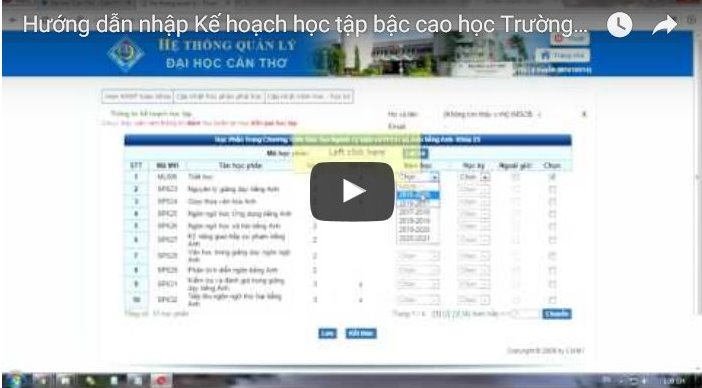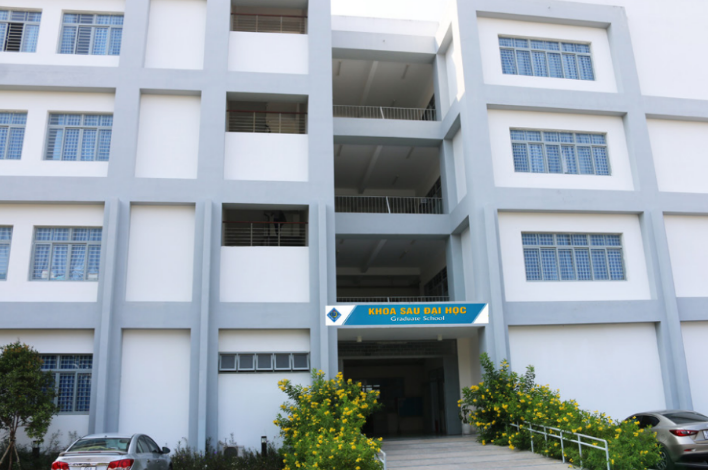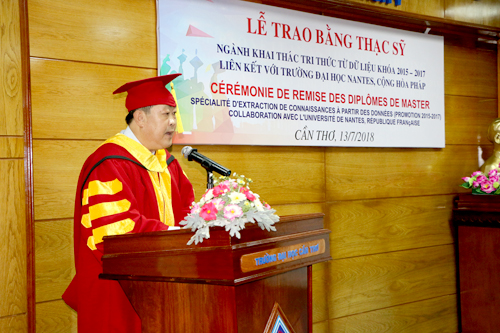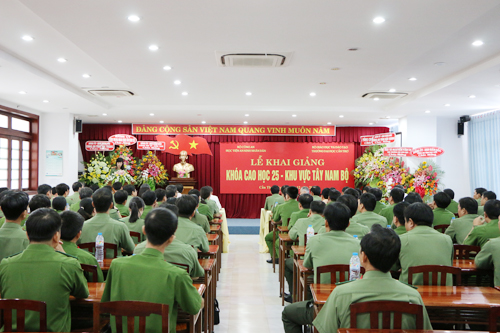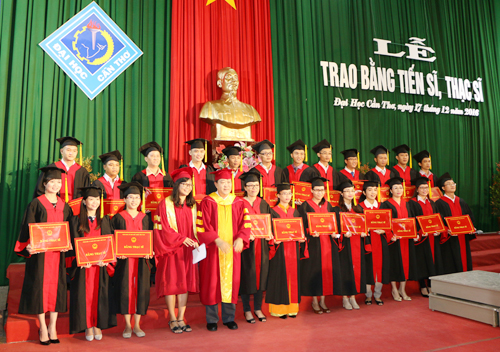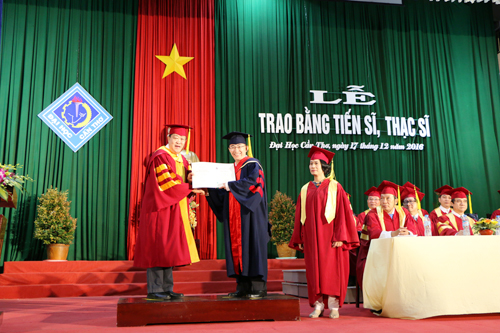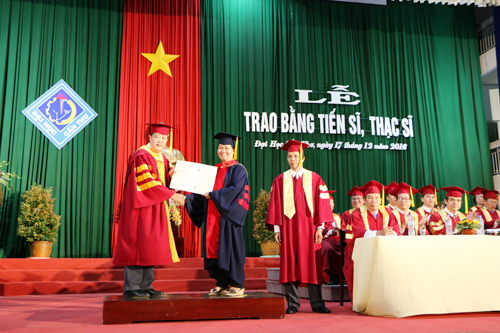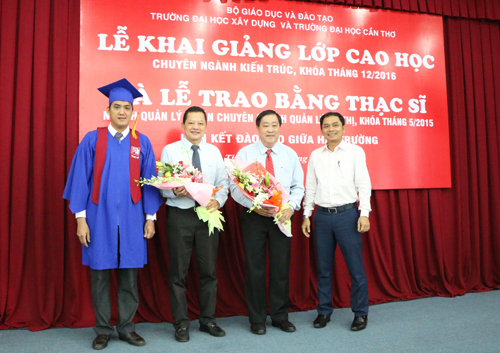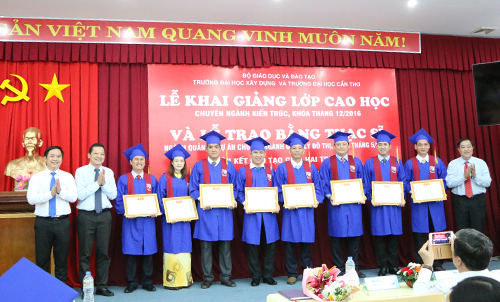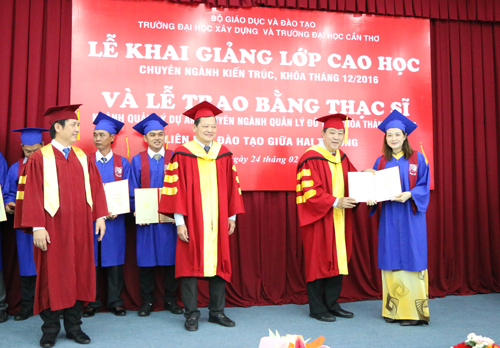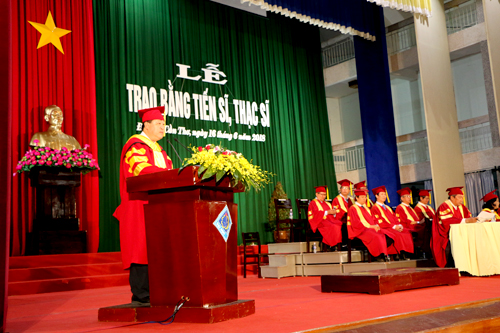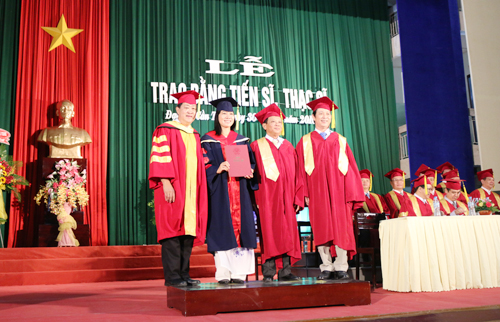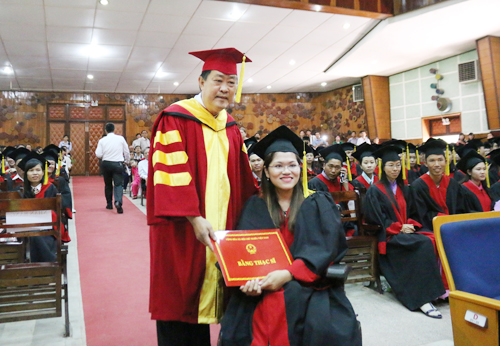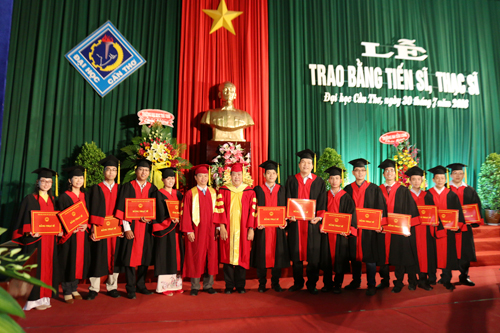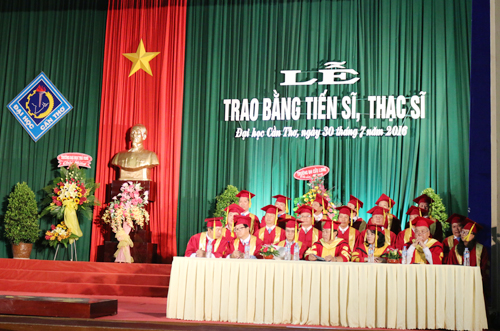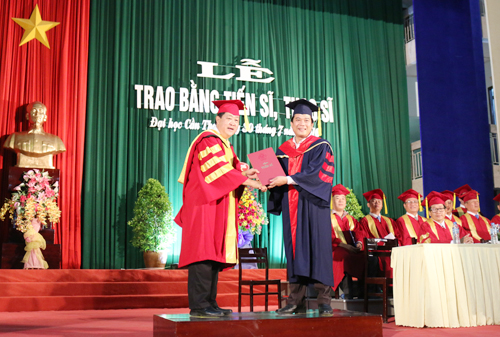
- Tên đề tài: “Năng lực quản lý và hiệu quả hoạt động của hợp tác xã nông nghiệp tại đồng bằng sông Cửu Long”.
- Tác giả: Phạm Minh Trí, Khóa: 2014
- Chuyên ngành: Kinh tế nông nghiệp; Mã số: 62620115. Nhóm ngành: Nông, lâm nghiệp và thuỷ sản.
- Người hướng dẫn chính: TS. Thái Anh Hòa – Trường Đại học Trà Vinh
- Người hướng dẫn phụ: TS. Lê Quang Thông – Trường Đại học Nông Lâm TP HCM
- Tóm tắt nội dung luận án
Nghiên cứu được thực hiện với mục đích xây dựng thang đo năng lực quản lý thông qua mô hình năng lực và đánh giá ảnh hưởng của năng lực quản lý đối với hiệu quả hoạt động của hợp tác xã nông nghiệp (HTXNN) tại đồng bằng sông Cửu Long (ĐBSCL). Luận án đã hệ thống hóa cơ sở lý luận về năng lực, hợp tác xã (HTX) và hiệu quả hoạt động của HTX. Nghiên cứu vận dụng lý thuyết nền về hiệu quả hoạt động của Ngô Đình Giao (1997) và xác định các tiêu chí đánh giá hiệu quả hoạt động của HTXNN. Bên cạnh đó, các công trình nghiên cứu trước đây về năng lực quản lý và hiệu quả hoạt động của HTX được lược khảo đầy đủ theo từng chủ đề, tạo cơ sở thiết lập mô hình năng lực và mô hình các yếu tố ảnh hưởng đến hiệu quả hoạt động của HTXNN.
Kết quả nghiên cứu xác định mô hình năng lực đội ngũ quản lý HTXNN tại ĐBSCL bao gồm 06 năng lực và 26 hành vi kèm theo, mức độ cần thiết, tầm quan trọng và trọng số được chỉ rõ. Nghiên cứu đã áp dụng hiệu quả cách tiếp cận năng lực theo hướng đa chiều. Kết quả kiểm định các giả thuyết cho thấy không có sự khác biệt về nhu cầu năng lực của đội ngũ quản lý HTXNN tại ĐBSCL theo thâm niên công tác, địa bàn hoạt động hay vị trí công tác.
Kết quả khảo sát về tình hình hoạt động của HTXNN tại ĐBSCL trong giai đoạn 2014 – 2016 cho thấy HTXNN được xếp loại khá trở lên chiếm tỷ lệ trung bình 66%. Năng lực của đội ngũ quản lý HTXNN tương đối thấp và có độ tuổi khá cao. Kết quả đo lường năng lực của Ban quản trị HTXNN tại ĐBSCL cho thấy mức năng lực tổng thể trung bình chỉ đạt 61,60%. Về hiệu quả hoạt động HTXNN, lợi nhuận bình quân/HTXNN đạt 242,33 triệu đồng/năm. Kết quả phân tích các chỉ số tài chính cho thấy đều đạt ở mức khá (Sinh lợi trên doanh thu đạt trung bình 18,68%, Sinh lợi trên tài sản đạt trung bình 20,97% và Sinh lợi trên vốn chủ sở hữu đạt trung bình 17,78%). Kết quả phân tích các chỉ số xã hội cho thấy mức độ đáp ứng nhu cầu dịch vụ của các thành viên tương đối hiệu quả (dịch vụ bơm tưới đáp ứng 92,69%, các dịch vụ khác đáp ứng trung bình 59,15%), số lượng lao động đều tăng qua các năm, tăng bình quân 8,68%.
Kết quả phân tích hồi quy chọn được 3 mô hình các yếu tố ảnh hưởng đến hiệu quả hoạt động của HTXNN tại ĐBSCL, thông qua 03 chỉ số đo lường (Sinh lợi trên doanh thu (ROS), Sinh lợi trên vốn chủ sở hữu (ROE) và Giải quyết việc làm (GQVL)). Các mô hình được chọn đã chỉ ra năng lực quản lý và các biến độc lập khác (Vốn góp, Quy mô và Tham gia của thành viên) có ảnh hưởng đồng biến với hiệu quả hoạt động của HTXNN. Kết quả kiểm định cũng chỉ ra có mối tương quan giữa Vốn góp, Quy mô thành viên với Năng lực quản lý. Kết quả nghiên cứu cho thấy yếu tố năng lực của HTXNN lĩnh vực cây ăn trái ảnh hưởng đến hiệu quả hoạt động của HTXNN mạnh hơn so với lĩnh vực lúa gạo, kết quả này phù hợp với tình hình thực tế là năng lực quản lý và hiệu quả hoạt động của HTX cây ăn trái luôn cao hơn so với HTX lúa gạo. Điều này chỉ ra tầm quan trọng của năng lực quản lý đối với kết quả đầu ra.
Từ khoá: Năng lực; Mô hình năng lực; Hợp tác xã; Hiệu quả hoạt động.
- Những kết quả mới của luận án
Nghiên cứu đã phân tích và làm rõ những vấn đề quan trọng về năng lực, các cách tiếp cận năng lực, HTX, hiệu quả hoạt động của HTX và các chỉ tiêu đo lường hiệu quả hoạt động của HTXNN. Nghiên cứu đã thiết lập được mô hình năng lực dành cho đội ngũ quản lý HTXNN tại ĐBSCL theo hướng tiếp cận năng lực đa chiều. Kết quả kiểm chứng các giả thuyết đã góp phần khẳng định có sự tồn tại nhu cầu năng lực chung của đội ngũ quản lý HTXNN, mặc dù có sự khác nhau về thâm niên công tác, địa bàn hoạt động hay vị trí công tác, phù hợp với nhận định của Dulewicz (1989) và Siu (1998). Kết quả nghiên cứu đã khẳng định năng lực quản lý có ảnh hưởng đồng biến với hiệu quả hoạt động của HTXNN, phù hợp với kết quả nghiên cứu của Pavão and Rossetto (2015) và Thuvachote and Phetphong (2014). Kết quả nghiên cứu là cơ sở khoa học cho các nghiên cứu tiếp theo về xây dựng thang đo năng lực quản lý đối với các lĩnh vực HTX khác hay loại hình HTXNN trong phạm vi toàn quốc.
- Các ứng dụng/khả năng ứng dụng trong thực tiễn, các vấn đề cần tiếp tục nghiên cứu
Nghiên cứu đã xây dựng và áp dụng hiệu quả thang đo năng lực vào đo lường năng lực quản lý của đội ngũ quản lý HTXNN tại ĐBSCL. Kết quả nghiên cứu là cơ sở quan trọng giúp Liên minh HTX tại các tỉnh/thành phố, Sở Nông nghiệp và Phát triển nông thôn tỉnh thực hiện tốt hơn nữa công tác hỗ trợ, đào tạo, bồi dưỡng và đánh giá hiệu quả hoạt động của HTXNN thông qua thang đo năng lực và các chỉ số đánh giá hiệu quả hoạt động của HTX, hay tham mưu thiết lập, điều chỉnh các tiêu chí đánh giá, phân loại HTXNN hằng năm. Nghiên cứu đã chỉ ra thực trạng về năng lực quản lý và hiệu quả hoạt động của HTXNN tại ĐBSCL từ năm 2014 – 2016. Nghiên cứu xác định được mức độ ảnh hưởng của năng lực quản lý đối với hiệu quả hoạt động của HTXNN phân theo lĩnh vực lúa gạo và cây ăn trái. Ngoài ra, Kết quả nghiên cứu là tài liệu tham khảo hữu ích cho các HTXNN quan tâm xây dựng chiến lược phát triển nguồn nhân lực nội bộ và khuyến khích khả năng tự nâng cao năng lực quản lý, đồng thời hữu ích đối với các Trường đạo tào, Trung tâm bồi dưỡng nguồn nhận lực cho HTX có chương trình đào tạo, bồi dưỡng phù hợp với nhu cầu của xã hội.
Các vấn đề tiếp tục nghiên cứu:
Thứ nhất, nghiên cứu này cần tiếp tục thực hiện với phạm vi nghiên cứu rộng hơn (đối với lĩnh vực HTXNN hay các lĩnh vực HTX khác) và nên có nghiên cứu cho lĩnh vực HTX nói chung ở Việt Nam để làm cơ sở tham khảo tốt hơn.
Thứ hai, nghiên cứu khám phá thêm các yếu tố ảnh hưởng đến sự hình thành và phát triển năng lực của đội ngũ quản lý HTXNN để từ đó có cơ sở vững chắc đề xuất những hàm ý chính sách, góp phần nâng cao năng lực quản lý và hiệu quả hoạt động của HTXNN.
- Thesis abstract
The study was conducted in order to develop a management competency scale through the competency model and evaluate the impacts of management competency on the performance of agricultural cooperatives in the Mekong Delta. The thesis has systematically developed a theoretical ground on management competency and the performance of cooperatives. The study applied the background performance theory introduced by Ngo Dinh Giao (1997) and identified criteria for performance assessment of agricultural cooperatives. In addition, previous studies on the management competency and performance of cooperatives are fully reviewed on each topic, laying the ground for the development of competency models and models of influencing factors on the performance of agricultural cooperatives.
The study findings help to develop the competency model for the management team of agricultural cooperatives in Mekong Delta, including 06 competencies and 26 behaviors, levels of necessity, importance and weight are cleared only. The study has applied effectively the multi-dimensional competency-based approach. The testing of assumptions indicates that there is no difference in the competency needs of the management team of agricultural cooperatives in Mekong Delta based on their seniority, operation area or job position.
Survey results on the performance of agricultural cooperatives in Mekong Delta from 2014 to 2016 show that agricultural cooperatives rated good or higher accounted for 66% on average. The competency of the management team of agricultural cooperatives is relatively low while their age is quite high. The competency assessment survey of the Management Board of Agricultural Cooperatives in Mekong Delta shows that the overall competency level only stands at 61.60% on average. Regarding the performance of agricultural cooperatives, the annual average profit of each cooperative reaches VND 242.33 million. All financial indicators have been analyzed and rated good (Return on revenue to stand at 18.68%, Return on Assets to stand at 20.97% and Return on Equity to reach 17.78% on average). The analysis of social indicators shows that the extent to which the needs for services among the members are effectively addressed is relatively high (irrigation services to meet 92.69%, other services to meet 59.15 % of public needs on average), and the number of employees has increased over the years, with an increase by 8.68% on average.
The results of regression analysis have generated three models of influencing factors on the performance of agricultural cooperatives in Mekong Delta, using 03 measurement indicators (Return on Revenue (ROS), Return on Equity (ROE) and Generation of Jobs). Selected models have indicated that the management competency and other independent variables (contributed capital, scale and members’ participation) have a positive impact on the performance of agricultural cooperatives. The testing results also show a correlation between contributed capital, scale and management competency. The study findings show that the competency of agricultural cooperatives in fruit tree farming has a stronger impact on their performance compared with those in rice farming, which is consistent with a fact that the management competency and performance of fruit cooperatives are always higher compared with rice cooperatives. This indicates the importance of management competency to outputs.
Keywords: Competency; Competency model; Cooperatives; Performance.
- New findings of the thesis
The study has analyzed and clarified key issues related to competency approaches to competency building, cooperatives, performance and performance indicators of agricultural cooperatives. The study has established a competency model for the management team of agricultural cooperatives in Mekong Delta towards a multi-dimensional approach. The testing of assumptions helps validate the general existence of competency building needs of the management team of agricultural cooperatives despite the difference in seniority, operation area or job position, which is consistent with the assumptions of Dulewicz (1989) and Siu (1998). The study findings have affirmed that the management competency has a positive impact on the performance of agricultural cooperatives, which is consistent with the findings of Pavão and Rossetto (2015) and Thuvachote and Phetphong (2014). The research results are scientific grounds for further studies on development of management competency scales for cooperatives in other fields or types of agricultural cooperatives nationwide.
- Practical application/applicability, issues for further research
The study has effectively developed and applied the competency assessment scale in the management competency assessment of the management team of agricultural cooperatives in Mekong Delta. The research results are an important basis for local Cooperative Alliances and provincial Departments of Agriculture and Rural Development to better deliver its support, training, retraining and performance assessment of agricultural cooperatives using competency assessment scales and performance indicators of cooperatives, or its advisory function on development and refinement of criteria for evaluating and classifying agricultural cooperatives annually. The study presented the status of management competency and performance of agricultural cooperatives in Mekong Delta from 2014 to 2016. The study identified the influence of management competency on the performance of agricultural cooperatives in rice and fruit tree farming. In addition, the research results provide a useful reference for agricultural cooperatives interested in having their internal human resources development strategies while encouraging self-efforts to improve management competency and working as a guide for training institutions and centers for human resources development for cooperatives to develop training programs that address the needs of society.
The issues for further research:
Firstly, this study should be further conducted on a broader scale (for other agricultural cooperatives or cooperatives in other fields) and there should be studies that target cooperatives in general in Vietnam as a better source of reference.
Secondly, the study can explore other influencing factors on competency building and development of the management team of agricultural cooperatives, that lays a solid ground for policy implications, contributing to improvement of management competency and performance of such cooperatives.
- Xem chi tiết nội dung luận án
- Xem thông tin đăng tải tại Website Bộ giáo dục và Đào tạo. (Nhập tên NCS vào ô tìm kiếm)

